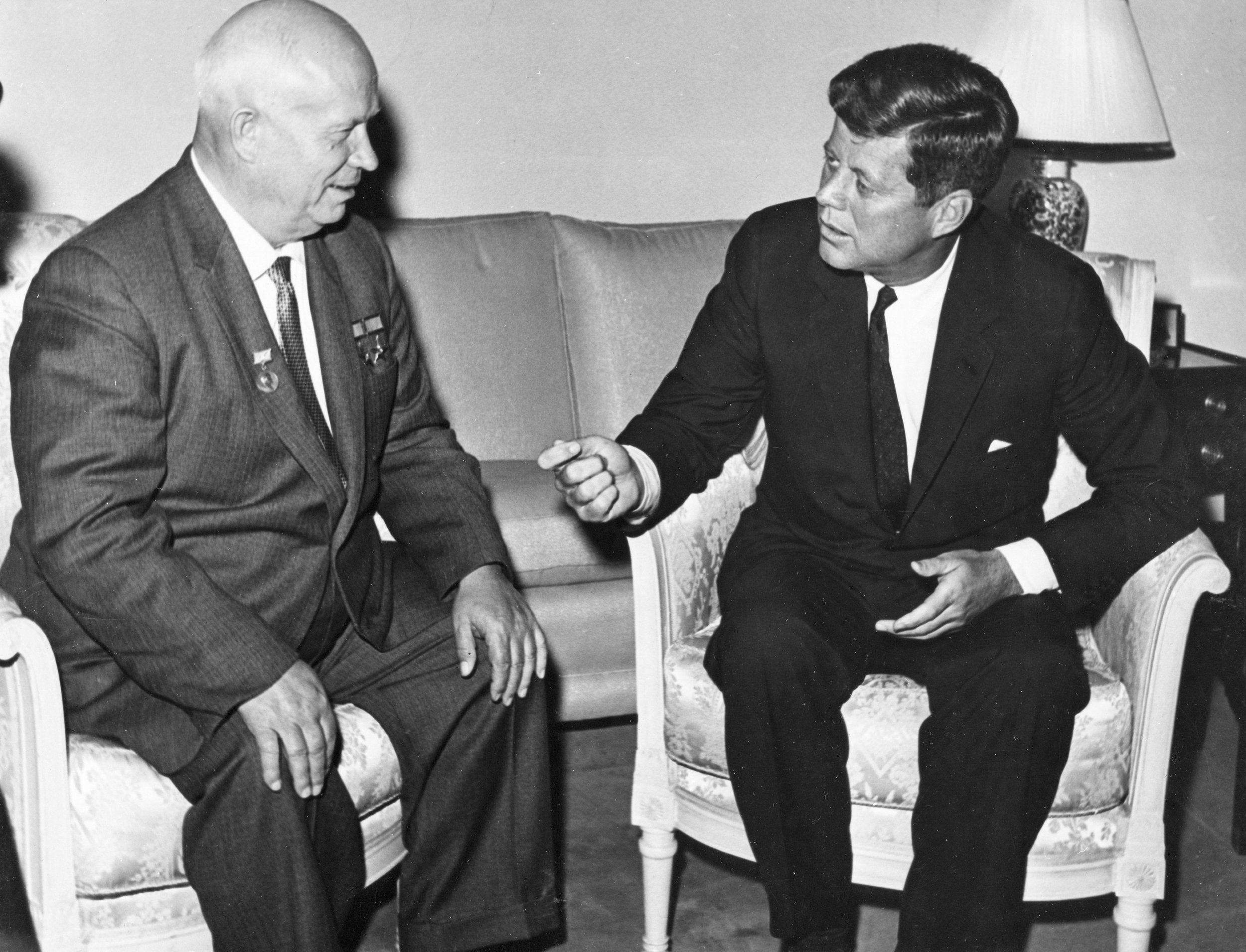
Nina Khrushcheva's grandfather, Nikita Khrushchev, was the leader of the Soviet Union who wrestled with President John F. Kennedy during the Cuban Missile Crisis, bringing the world to the edge of nuclear war.
In this extract from her new memoir, she recalls how his daring reputation in Moscow was not recognized in the United States.
I always knew that my grandfather's legacy was a mixed matter, not a straightforward story of democratic good overcoming totalitarian evil.
Stalin's loyal lieutenant for more than 20 years, some still considered him a despot. But for many, he earned his reputation as a reformer due to his secret speech, a four-hour address to the twentieth party congress in 1956. Khrushchev delivered the speech at night to a limited 100-person audience to prevent Kremlin hardliners from staging a pro-Stalin coup. He became the first leader to publicly attack the dictator's legacy of terror and totalitarianism, which—from industrialization, famine, war, detentions and executions—killed nearly 30 million people, and some accounts list the total as twice that.
These revelations left many across the country stunned. Some cried, others fainted. Those unable to bear the horrible shock—Alexander Fadeev, chair of the Soviet Writers Union, is perhaps the most prominent example—committed suicide.
In the USSR, Stalin was God, "the father of the nation," someone to whom many felt closer than their own family members. Khrushchev not only showed the Soviet people that their God didn't exist; he unmasked him as the devil.
After my grandfather's speech, Soviet authorities released millions of Stalin's victims from detention or posthumously rehabilitated their reputations, even though many groups of political "enemies"—the peasant middle class (the kulaks), Nikolai Bukharin, Leon Trotsky, and their supporters—remained unmentionable for decades to come.
Khrushchev also ordered the closing of the gulag, the agency that ran the Kremlin's prison system, although some individual camps continued to function. Taken together, my grandfather's reforms spearheaded "the Thaw," an era during which the government relaxed its censors, allowing for greater political, personal, and artistic freedom.
By 1961, the process seemed almost irreversible, so much so that eight years after Stalin's death, his body was taken out of Vladimir Lenin's tomb in Moscow's Red Square and reburied a few yards away next to the Kremlin wall, where it remains to this day. As one Soviet writer from the Thaw generation put it, "The premier is the only guarantee against the possible restoration of the Stalin order."
The view of my grandfather in the United States, however, was far different. In the 1960s, American schoolchildren ducked and covered under their desks in case the menacing Khrushchev, or Hurricane Nikita as he was called, carried out a nuclear missile attack.
Stories of him banging his shoe on the desk at the United Nations in 1960 or sending rockets to Cuba in 1962 were central to the American public's narrative. They also captured the imagination of Hollywood—Don Siegel with his 1956 Invasion of the Body Snatchers or Stanley Kubrick in the 1964 film Dr. Strangelove, featuring Khrushchev's replica, the erratic premier Dmitri Kissoff.
And in the USSR, the premier soon became menacing too. As quickly as he had denounced Stalin, acolytes of the fallen Communist God denounced my grandfather in turn, voting him out of office. On October 14, 1964, Leonid Brezhnev took over the Soviet Union.
As Vyacheslav Molotov, a die-hard Stalinist to his last breath, once put it: "With Stalin we followed the directions of a strong hand; when the hand got weaker, each started to sing his own song…. Nikita let out a beast that brings horrible harm to our society. It's called democracy, humanitarianism, but it's simply a bourgeois influence."
The liberal intellectuals were right: Khrushchev was the "only guarantee" against Stalinism, and with Brezhnev at the helm, the premier's name was immediately deleted from the history books and any official public record.
At the primary school that I attended with other children of elite party members on the communist-chic Kutuzovsky Avenue, my teachers never once mentioned his rule. Anything that happened in the annals of government between Stalin and Brezhnev they merely described as the work of the Communist Party.
It was as if Khrushchev didn't exist, that he never had. He had become a ghost, spending his retirement years in virtual isolation, with the KGB closely monitoring his visitors and the infrequent trips he took outside his country home west of Moscow.
Extracted from The Lost Khrushchev: A Journey Into the Gulag of the Russian Mind by Nina L. Khrushcheva, which is published this week by Tate.
Tomorrow's extract: A Breath of Fresh Air in the Kremlin
Uncommon Knowledge
Newsweek is committed to challenging conventional wisdom and finding connections in the search for common ground.
Newsweek is committed to challenging conventional wisdom and finding connections in the search for common ground.
About the writer
To read how Newsweek uses AI as a newsroom tool, Click here.








